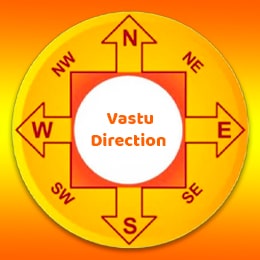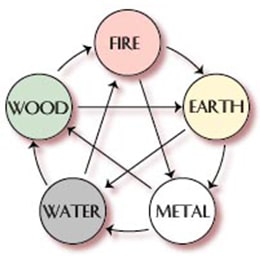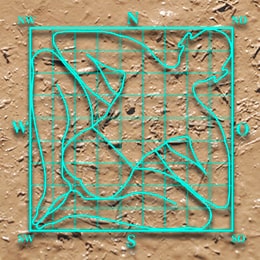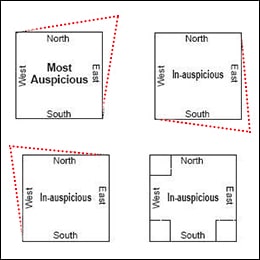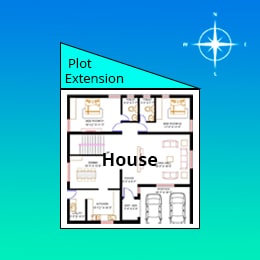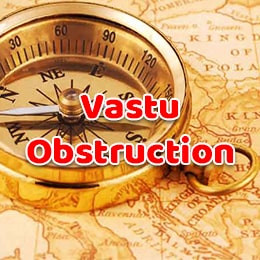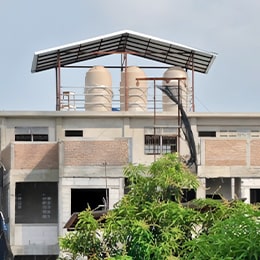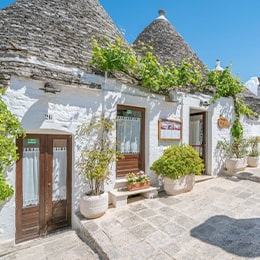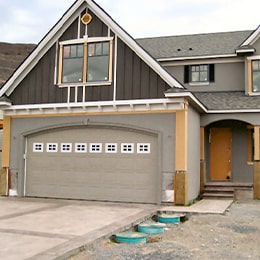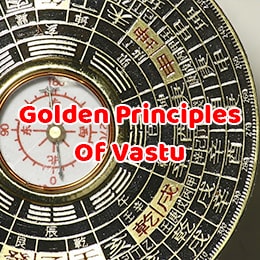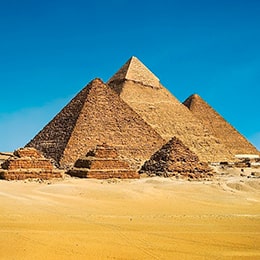What is Residential Vastu?
Every particle in this cosmos whether transient or intransient is madeup of fivr constituents which are called Panchamahabhulas. Vastu is basically a science based on the balancing phenomena of these five elements in dwelling places or the places of other activities. Various ancient text like Vedas, Puranas. sambilas and jain Agams mention about the vastu Principles for architectural constructions.
We have acquired the knowledge of Vastu Shastra from the four vedas namely Rigveda, Yajurveda, Soma Veda and Atharva Veda. Apart from the Vedas, lots of information regarding Vastu Shastra is available in the Puranas and in other ancient texts. The first mention of the principles of Vastu has been found in the Great Rigveda. After the vedas, four upavedas were also composed by the rishis. One of these upavedas is the Sthapatya veda, which is the upaveda of Artharva veda. With the passage of time Sthapatya veda was developed as Vastu Shastra.
The puranas which provide the knowledge of vastu are Matsya purana, Skanda purana, Agni purana, Vayu purana, Garuda purana and the Bhavishya purana. Matsya purana gives detailed information regarding rock carvings and the position and decoration of ceremonial sites and venues. Narad purana gives valuable information regarding temples. Similar information regarding temples is also provided in Vayu purana's but this purana deals with temples located at great height. Skanda purana deals with the principles of town planning and their layout. Metropolitan cities of the western civilisation would lose their lustre in front of the principles explained in this purana. Agni purana lays down the principles of residential dwelling units or residential houses. So we find that our classics are store houses of such vast knowledge.
Apart from these extremely ancient sources, there are many more granthas providing exhaustive knowledge regarding vastu. These are the Ramayana, the Mahabharat, the Arthshastra of Chanakya, Buddhist and Jaina granthas, Brihat samhita, Samarangan Sutradhar, Vishwakarma prakash, Mayamat, Mansar and Vastu Rajavallabh. The eighteen pravartakas like Bhrigu, Shukracharya, Brihaspati and the other's have also dealt with this subject extensively. All these classics are complete by themselves, but in the eleventh century the king of Malva Bhoj Parmar composed 'Samarangan Sutradhar which is one of the most established and proven granthas of Vastu. It is a compilation of the principles laid down in all these previous vastu granthas. It also provides simple remedial measures for correction of Vastu faults without damaging the constructed house.
Vastu shastra originated in the Vedic age and up to the 13th century AD it flourished and became a part of peoples lives. After the advent of the Mughals, the popularity and practice of this art diminished, though it remained popular in South India. Once the British arrived, this remarkable art practically vanished. People started ridiculing it and started considering it to be old fashioned and stupid, instead of accepting it and practising it. It has fortunately been revived today and is giving us health wealth prosperity and peace in the tension filled life of today.
The word Vastu originated from the Sanskrit word "Vas" and the meaning of this word is to live life or to reside. The word "Vasu" originated from "Vas" and finally this word "Vastu" originated from "Vasu". The meaning of वास्तु is व + अस्तु which means for living, therefore meaning of the word Vastu is a place where a person resides. The meaning of Shastra is a book which deals with the mysterious and systematic explanation of a subject, therefore the meaning of Vastushastra is a book related to the residence. The origin and anatomy of Vastushastra is based on the principle of the five elements of creation.
As our body is also made up of these five elements, if enough attention is paid to the incorporation of these five elements in the construction of a house then the people residing in the building shall reside happily. These five elements are- Earth, Water, Fire, Air and Space. Our universe also is made up of these five elements only. Therefore the saying goes :
यत पिण्डे तत ब्रह्माण्डे |
Yatpindetatbramhande
God (भगवान— bhagwan) has given these five gifts to us :
- from भ (bha) भूमि (land)
- from ग (ga) गगन (sky, ether)
- from वा (va) वायु (air)
- from न (na) नीर (water)
God is represented by the symbol ॐ (Om). These five elements are present in this Om also. "Aa" (अ) is Agni (fire), "Au" (उ) is Jal (water), "Ma" (म) is Vayu (air), "ardhachandra" (ॅ) is Bhoomi (land) and "Shunya" (0) is Akash (ether, sky). Similarly the word Vastu also denotes these five elements. From "Va" (व) Vayu (air), from "Aa" (ा) अ Agni (fire), from "Sa" (स) "Srishti" Bhoomi (land), from "Ta" (त) Tat means Akash (ether/ sky) and from "Au" (उ) Jal (water).

Vastu Purush Representing
Five Elements
These five elements also are represented by the five planets:
- Earth is represented by Mars
- Water is represented by Venus
- Fire is represented by Sun
- Air is represented by Saturn
- Ether is represented by Jupiter
Similarly mind is controlled by Moon. Intelligence is controlled by Mercury. Ego and arrogance is controlled by Rahu and moksha or spirituality by Ketu. Disbalance of these elements in the body produces ill health and disease. In a similar manner the disbalance of these elements in a house creates varied kind of troubles for the persons living in it. There are unlimited forces present in nature. Some of these forces influence us, for example the gravitational force of earth, the magnetic and electrical energy of the universe and the electromagnetic force present everywhere.
These energies also exist in the constructed house and they continue influencing the electro magnetic force present in the human body. This produces the auspicious or inauspicious results. These results vary from place to place depending on the geographical location. For these reasons the results of vastu principles are not the same all over the world. They differ according to the longitude and latitude of the place. They also differ according to the horoscope of the person concerned. If man goes along with the flow of nature's energies, it produces good health, progress and prosperity. If he goes against the flow of nature, he faces hurdles and obstructions everywhere. Hence it is utmost important and necessary for us to organize our lives according to nature, only then we can live happily. Halayudha kasha makes the following statement regarding vastu.
वास्तु संक्षेपतो वक्ष्ये गृहादों विघ्ननाशनम |
ईशानकोणादारभ्य ह्योकाशीतिपदे त्यजेत् ||
Vastu is that art of house construction, which starts from Ishan kona etc. and which protects the residents of the house from natural calamities and obstructions. According to Amar kosha
गृहरचना वच्छिन भूमे |
The land suitable for house construction is called Vastu. Vastu is also considered to be that land on which a building or a house is constructed. In other words Vastu is that knowledge which gives us information regarding the construction and the utility of the house.
Similarly king Bhoj Parmar states in the fifth shioka of the first chapter of his famous 'Samrangan Sutradhar'
वास्तुशास्त्रदृते तस्य न स्याल्लः क्षणनिश्यचः |
तस्माल्लोकस्य कृपया शास्त्र्मतेदृदीर्यते ||
Apart from the principles of Vastu shastra there are no other guidelines for proper construction of a house.
In brief, keeping vastu of a place in harmony with the principles of vastu shastra is vastu.
समारांगण सूत्र धनानि बुद्धिश्च सन्तति सर्वदानृणाम् |
प्रियान्येषां च सांसिद्धि सर्वस्यात् शुभ लक्षणमफ ||
यात्र निन्दित लक्ष्मत्र तहिते वां विधात कृत |
अथ सर्व मुपादेयं यभ्दवेत् शुभ लक्षणम् ||
देश पुर निवाश्रच सभा वीस्म सनाचि |
यद्य दीदृसमन्याश्रच तथ भेयस्करं मतम् ||
वास्तु शास्त्रदृतेतस्य न स्यल्लक्षनिर्णयः |
तस्मात् लोकस्य कृपया सभामेतंदुरीयते ||
A house constructed according to the principles of vastu bestows all kinds of happiness, wealth, wisdom and peace. It also gives freedom from debts. By disregarding these same principles the same abode can cause undesired journeys, defamation, disappointments and unhappiness. So all houses, villages, towns and cities should be constructed according to the principles of vastu. This shastra has been composed by the rishis for the benefit and progress of mankind.
Narad Samhita also advocates that vastu propagates the aim of health, wealth, prosperity, peace, happiness and progeny of the owner of the house.
Vastu shastra is a very deep and profound subject, which is based on the principles of science and spirituality. The houses constructed in harmony with the principles of Vastu are auspicious and bestow happiness, while those which violate these guidelines cause destruction. Similarly industrial and professional complexes based on vastu principles promote success and happiness. The aims of residential vastu are attainment of Dharma, Artha, Kama and Moksha, while those of professional and industrial vastu is attainment of 'Artha' or money. Proper vastu in industry also promotes production, profits, customers and success. It produces harmony between the management and the workers and also between the industry and society. It also helps the industry to fulfil its social responsibility.













